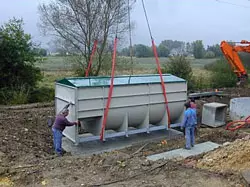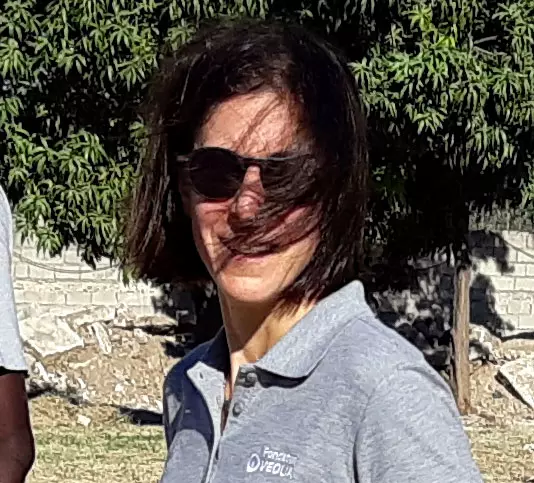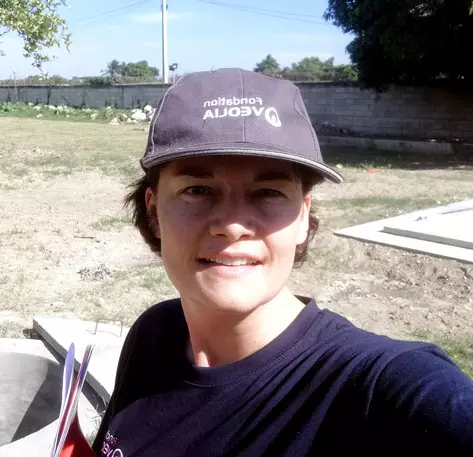The Veolia Foundation and Médecins Sans Frontières (MSF) have enjoyed a long-standing partnership. After several collaborations in the field, the two partners signed a framework agreement in 2012 to formalize their relationship, marked by numerous joint humanitarian interventions and a constant desire to innovate.
The principle is simple: MSF asks the Foundation to provide its research and operational programmes with support fuelled by the technical skills available within the Veolia group; the Foundation then places its volunteer Veoliaforce experts at MSF's disposal to support it in its research and innovation projects dealing with issues related to its activities in the field and in areas close to the Veolia group's business lines (energy, waste, sanitation and drinking water). The objective is to test new operating methods and equipment to allow MSF to better control its environmental footprint and gain autonomy during its humanitarian interventions.
The issue of sanitation is thus the subject of several research and operational programmes, one of which, initiated in 2018, took shape in Haiti, at the Drouillard district hospital in Port-au-Prince.
Hospital wastewater is potentially more toxic than conventional wastewater because of the presence of drug residues and high concentrations of disinfectants. It is also potentially more saturated with pathogens (bacteria, viruses, etc.).

MSF and the Veolia Foundation worked together to find the best solutions to deal with this problem and to design a suitable treatment station. The idea they came up with was to use biodiscs[1] to treat these hospital effluents. So what does this approach involve? It's a purification process based on an aerobic biological treatment with fixed biomass. The purifying microflora are supported on discs partially immersed in the effluent to be treated and driven in a rotational movement to ensure not only the contact of the bacteria with the effluent, but also their effective oxygenation and mixing in. In the submerged phase of the disc rotation cycle, the fixed biomass takes organic and nitrogenous matter from the wastewater, then digests and degrades it. In the emergent phase of the disc cycle, the bacteria breathe.
The installed unit thus treats the effluents by combining biodiscs, rotary drum filtration[2] and the UV disinfection of the residual microbial flora. To put the finishing touches to this innovative installation, several Veoliaforce volunteers went to the site to perfect the final details, check that the system was functioning correctly and to train staff in its operation.
---
[1] Ecodisk biodiscs (Veolia).
[2] Hydrotech model (Veolia).
TESTIMONIES
“A Veoliaforce mission is a collective adventure! ”
Antonella Fioravanti, who has worked as an engineer for the Veolia Group since 1998, has been a Veoliaforce volunteer for over twenty years. She has been involved in the project undertaken in Haiti with MSF since its inception.
“The aim of a Veoliaforce mission is to move a project forward.”
Merel de Wildt, an engineering project manager at Veolia Water Technologies, managed to go on a mission to Haiti between two lockdown periods in 2020. With a key word to guide her: adaptability.
MSF and the reduction of its environmental footprint
The environmental footprint of its field programmes has been under review at MSF for several years. The development of large hospital complexes located in urban neighbourhoods, such as in Port-au-Prince in Haiti, has led the NGO to seek more compact wastewater treatment solutions that can attain the same efficiency as traditional septic tanks and absorption fields, which require large areas. “Our objective now is to be able to discharge effluents with acceptable physicochemical and bacteriological characteristics directly into the gutters”* explains Laurent Dedieu, director of logistics at MSF.
To limit its carbon footprint, MSF also plans to install hybrid solar pumps in conjunction with the Veolia Foundation as a pilot project in Moissala (Chad).




